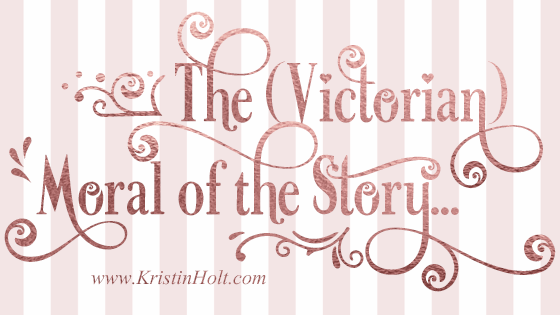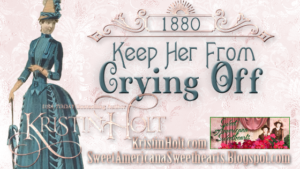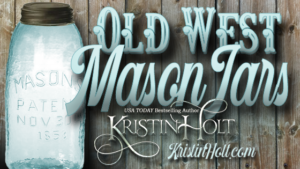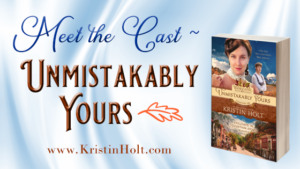The (Victorian) Moral of the Story…
The (Victorian) Moral of the Story…
.
![]()
.
We’ve all heard variations on this theme: the grasshopper who didn’t prepare for winter, preparing to laze away his summer days…
.
The Two Squirrels, published in The Waterloo Courier of Waterloo, Iowa on January 21, 1880, is a prime example of fables—tales with morals– which fit in nicely with Victorian American social mores. Such tales were often published with an eye toward impressing upon the readers (male and female, young and old) the importance of various social mores; working hard, honesty, wasting not a moment, obeying parents, being on time, respecting one’s elders, etc. Victorians loved teaching with morals, and publications often ended with the moral stated succinctly and without gloss.
.
Note: great care was taken to preserve historic spelling, punctuation, capitalization, etc. Errors (if considered in the perspective of 2018) were transcribed as published in 1880.
.
![]()
.
THE TWO SQUIRRELS.
.
—
.
ONCE there were two squirrels, who lived neighbors to each other in a great forest. One pleasant but frosty day, when the nuts were dropping, they both started out from their holes in the big chestnut trees, and began to frisk about in the sunshine and to chatter and eat nuts. These two squirrels looked just alike, but, in reality, they were very different; for one of them, after playing a few minutes, began to fill his cheeks with nuts, and scamper off to his hole, to pack them away. But the other kept on playing and eating, and seemed to think of nothing but having a good time.
.
“Why don’t you work part of the time?” asked the busy squirrel. “Don’t you know that a long, cold winter is coming, when all these nice nuts will be covered with snow?”
.
“There will be plenty of time to work before the snow comes. We don’t have weather like this every day, and I am going to enjoy myself while it lasts. I can work when the sun doesn’t shine so warm and bright. If you choose to spend all of your time working, you can. But as for me, I intend to enjoy myself.”
.
“So do I,” said the smart squirrel, “but I intend to get my work done first. After I get my hole full of nuts. I shall have nothing to worry about. No matter how hard the wind blows, or how deep the snow is, I shall have enough for all winter. I am well and strong to-day, and it is pleasant to work out here in the sunshine, but to-morrow I may be sick or it may storm.
.
“So I shall work, and you may play,
All this bright October day;
But when the storms of winter roar,
Don’t come begging at my door.”.
So the days passed on. Up and down, up and down, the busy squirrel went, until his hole was full to running over with ripe fat nuts. But the lazy squirrel played and frisked about, filled his stomach instead of his cheeks with nuts, and laughed at those who were wasting such pleasant days in labor. But at last one morning when he waked up he was surprised to find how cold it seemed. He peeped out of his hole, and behold! it was snowing. The ground was already covered an inch deep.
.
“Whew! exclaimed he, “the snow has come early, this year. It surely is not time for winter yet. I must go to work, after this melts away, as it surely must, and lay in my food for winter. But as he looked around at the bare branches of the trees, and heard the wind whistling through them, he thought o himself; “This certainly seems like winter, bit it cannot be possible that it has come so soon. But I must see what I can find for breakfast. I guess I can scratch away the snow, and get a few nuts.”
So out he went, and as he passed his neighbor’s home, he glanced up slyly to see if she were looking out. He felt ashamed. He went off quite a distance, and finding a spot where he remembered he saw some nuts the day before, commenced to scratch away the snow. He found several, but it was cold work, and made his paws ache. He went back to his nest, wondering what he should do, if winter had really come in earnest. All day long the snow kept falling. Night came, and he had to go to bed without any supper.
In the morning, he felt almost starved. He looked out; the snow was very deep, and more was falling. He thought of all the nice nuts that lay under it, and wished that he had taken time in the warm, sunny days to gather them. But it was too late now. His heart was very heavy and his stomach very empty. He thought of his neighbor with her nest packed so full of walnuts, chestnuts and delicious little beechnuts. It made him very, very hungry. As the day passed by, he felt as if he could not endure it any longer. So he went over to his neighbor’s house and peeped in. There she was, as snug and warm as could be, cracking nuts, and singing to her mate:
.
“I’m glad we worked when days were warm,
And saved for stormy weather;
For had we not, in this bad storm
We might have starved together.”.
He stood there so ashamed that he could not speak for awhile. He had never begged before, and it was hard work–much harder than gathering nuts in the sunshine would have been–but he had to confess, at last, that he was nearly starved, and to ask for a few nuts.
.
“I should be glad to give you enough to last you all winter, if I had them to spare,” said the squirrel, “but I only laid in enough for my own family, and the signs foretell a very hard winter. I can give you a few for your breakfast though.
.
So the poor squirrel took them, and went home. But they didn’t last long. Oh! the miserable hungry days that followed! The squirrel pined day after day for food. He was glad to get anything to eat. Sometimes he found a few nuts that had staid on the trees, and when a thaw came, as it did occasionally, he could find some under the snow. Often he was glad even to chew bark, and nibble the buds from the trees. But it was a hard winter, and he was a thin, miserable-looking squirrel when spring came. But it taught him a good lesson, and when another fall came, and the nuts began to drop, there wasn’t a busier squirrel to be found. When his neighbor saw how smart he was, she changed her old song a little. It was now,
.
“First we’ll work and then we’ll play,
On this bright October day;”.
and he sang with her, at the top of his voice.
–Lizzie C. Deering, in Examiner and Chronicle of Waterloo, Iowa, January 21, 1880.
.
![]()
.
Shopkeeper, a hard-working Squirrel…
.
Hank Murphy, owner of the new and fancy T.A. Murphy’s Grocery Emporium in Mountain Home, Colorado, has enough experience to know the necessity of “making hay while the sun shines”. In his line of business, that means ensuring enough supplies are brought in by train long before winter storms close the high mountain pass, cutting off his community from outside assistance.
.
Generally speaking, those enjoying the conveniences of modern times (1887) enjoy the ease of products and goods moving by train, and though they’ve seen tough winters, are certain their grocer is off his rocker. Poor Hank. As Unmistakably Yours opens, he’s just about to shake hands with the landlord, securing the empty space adjacent to the one he’s already rented in the mayor’s new brick block (of many different stores / shops). But wouldn’t you know it? The pesky woman who owns and operates a silly tea room wants that space, too.
.
Who will secure that much-needed empty store? ONE PRIZE.
.
With both of them vying for it, who will win? TWO CONTESTANTS.
.
Throw in four Murphy boys, Miss Jane Vancoller’s aging Mama who won’t leave well enough alone, and two very broken hearts… and somehow, we’ll come up with…. THREE MIRACLES.
.
Learn much more about my new full-length release, Unmistakably Yours here, on the book’s dedicated page on my website.
.
.
![]()
.
Related Articles
.
.
![]()
Updated March 2022
Copyright © 2018 Kristin Holt LC
The (Victorian) Moral of the Story… The (Victorian) Moral of the Story…

















